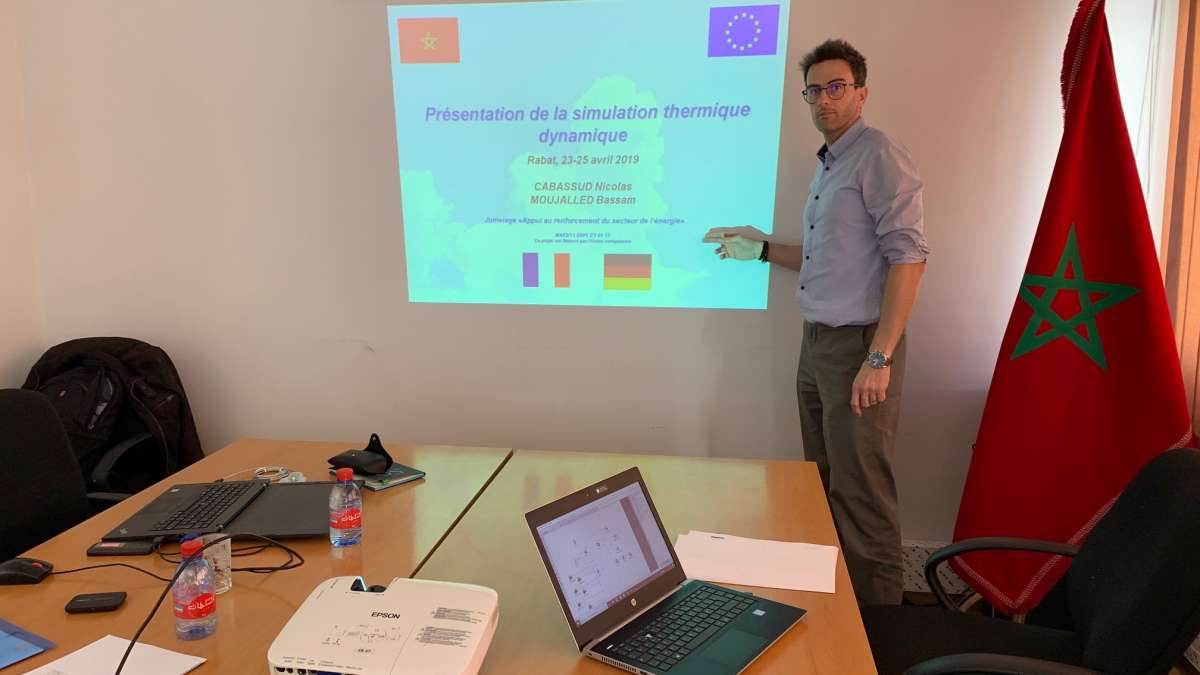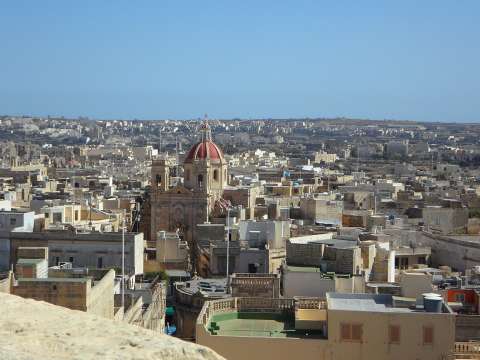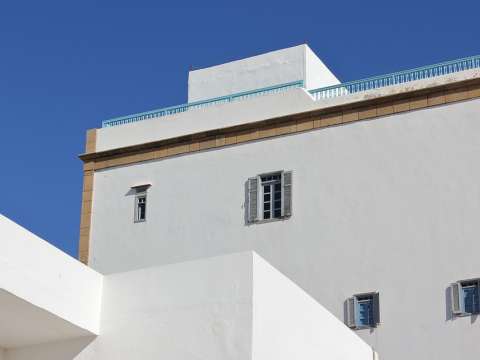
This mission is the first in the "Support for strengthening the energy sector" activity between the European Union and the Kingdom of Morocco.
It was dedicated to technical tools and training on the subject of thermal regulations.
The training took place in Rabat from April 22 to 26, 2019, with the intervention of two Cerema experts. They explained the French framework for thermal building regulations and trained Moroccan experts in the use of dynamic thermal simulation software.
This twinning MA53/13 ENPI EY 01 17 "Support for strengthening the energy sector", funded by the European Union and coordinated by Expertise France, was launched in May 2018.
Training objectives and exchanges between the various players

To present the issues and principles involved in the regulatory thermal assessment of French buildings, with a view to enabling Moroccan experts to draw lessons for the practical implementation of their own regulations.
Explain the benefits of dynamic thermal simulation (DTS) in the Moroccan context.
Identify ways of speeding up the implementation of thermal building regulations in Morocco.
Back to training

The 1st stage consisted in presenting the issues and principles of regulatory thermal assessment of French buildings to enable Moroccan experts to draw lessons for the implementation of their own regulations.
Discussions highlighted the need to set up a support system to ensure that the regulations are applied in Morocco.
Discussions then focused on the issue of summer comfort. The French experience, with its Mediterranean and tropical climates in the French overseas departments and territories, was used to present comfort ventilation measures that can reduce the need for air-conditioning. These measures could also be tried out in Moroccan buildings. The difficulty is that air-conditioning systems have become accessible and democratized in Morocco. What is more, their presence in a home is a social marker.
The next stage presented dynamic thermal simulation (DTS). Its interest in the Moroccan context : « What is it and what purpose does it serve? ».
Discussions showed that there was confusion between the predictive calculation of an DTS tool and the conventional calculation of a regulatory tool. The regulatory assessment must be carried out using a conventional calculation: it is the construction that is being assessed, not the behavior of the occupants. Conventional calculations freeze external variables that have no connection with the building's performance, such as occupancy, temperature set points, meteorology, etc. Morocco has its own regulatory tool: "BINAYATE".
Finally, in order to enable Moroccan experts to adjust the calculation method used by "BINAYATE" in the future and to modify current calculation algorithms, an interactive demonstration was carried out.
The environment and use of two DTS software packages, TRNSYS and PLEIADES, were presented through the modeling of a Moroccan building (envelope, masks, scenarios, weather, etc.) and the creation of variants. The Moroccan experts were able to appreciate the modularity of TRNSYS and the fluidity of use of PLEIADES with its graphic interface. Working with these two programs is more of an initiation than a training course. It will enable the Moroccan experts to orientate their further learning.
Exchanges between French and Moroccan experts helped identify ways of speeding up the implementation of Morocco's Building Thermal Regulations (RTCM), as well as assessing its implementation. This training will be followed by a second session on the development and implementation of a procedure for monitoring the application of the RTCM, with technical support for the application of the "BINAYATE" regulatory tool.

